PBM Reform: What, and Why,
You Need to Know
Pharmacy Benefit Managers (PBMs) are inflating drug prices, silently bleeding independent pharmacies, and putting lives at risk—and most Americans don’t even know they exist.
These corporate middlemen have hijacked the healthcare system under the guise of cost savings, but their unchecked power has created a crisis: patients can’t get their medications, pharmacists are forced to close their doors, and no one is being held accountable.
The Public needs to see what's really happening and get mad, because emotions are what moves us to Act.
We're here to. . .EDUCATE, ENRAGE & ENGAGE

What Are PBMs?
Definition & Brief History
Pharmacy Benefit Managers (PBMs) were created to manage prescription drug benefits for health insurers, aiming to control costs and streamline access. Initially, their responsibilities included developing formularies, negotiating rebates with drug manufacturers, managing pharmacy networks, and processing claims.
However, over time, PBMs evolved into powerful middlemen with little transparency or accountability. Rather than reduce costs, they now often drive up prices while harming independent pharmacies and patients alike.
PBMs operate as gatekeepers. They dictate which medications are covered, set reimbursement rates for pharmacies, and negotiate undisclosed rebates that don’t always benefit patients or plan sponsors. This opaque system has enabled them to quietly accumulate vast power over the U.S. drug supply chain.
How Are PBMs Harming Us?
Patient tragedies: One heartbreaking example is Cole Schmidtknecht, a 22-year-old who tragically died after he couldn’t afford his asthma inhaler due to PBM-imposed price barriers. Stories like Cole’s highlight the very real dangers of unchecked PBM influence.
Financial Destruction of Independent Pharmacies: PBMs reimburse independent pharmacies at unsustainably low rates while charging insurers higher prices and pocketing the difference. Retroactive DIR (Direct and Indirect Remuneration) fees can be assessed months after a transaction, forcing pharmacies to operate in financial uncertainty.
Patient Impact: Patients face delays, higher copays, and barriers to accessing necessary medication. PBMs use practices like step therapy and prior authorization to restrict access to drugs, often prioritizing profit over patient care.
How Did PBMs Get So Powerful?

Vertical Integration: The top three PBMs (CVS Caremark, Express Scripts, and OptumRx) are now part of massive health conglomerates. They control not only drug benefits but also insurance companies and pharmacy chains. This structure allows them to steer patients, limit competition, and profit at each level they own.
Legislative Inaction: Despite efforts from pharmacists and patients, state and federal governments have often failed to implement meaningful reform. In Wisconsin, over 11,600 patient petitions were submitted in support of PBM legislation. The bill had 104 cosponsors yet was stripped of reforms due to corporate lobbying.


Opaque Systems: Lack of transparency in how PBMs set prices, negotiate rebates, and reimburse pharmacies means few people understand their impact, including lawmakers.
Want to learn more details: Who PBMs are, Where they came from, How are they hurting us, & How did they gain so much power? Watch the First Episode of Modern Medical Mafia. This is full of powerful interviews with real people who encounter PBMs and suffer the effects they have on average everyday people. Plus learn about the Grassroots Movement that is rising against the PBMs.
Government Action: Is Anything Being Done?
Federal Legislation: The Pharmacists Fight Back Act is the most comprehensive federal PBM reform effort to date. It seeks to ban retroactive DIR fees, eliminate spread pricing, and ensure fair pharmacy reimbursements. This legislation aims to return control to patients and their care providers.
State-Level Action: Cole’s Law (SB203/AB173) in Wisconsin, named after Cole Schmidtknecht, seeks to hold PBMs accountable for patient access barriers and reimbursement practices. Despite strong support, the bill’s fate remains uncertain due to industry interference.
National Advocacy: Independent pharmacists, patients, and advocacy groups are uniting under initiatives like "Finish the Fight" to push for PBM reform to be included in national funding bills and health policies.
Use grassroots tools to contact your legislators and demand support for PBM reform. Share your support for Cole’s Law and federal efforts like the Pharmacists Fight Back Act.
What Can You Do?
Share Your Story:
Your personal experience with PBMs can highlight the human cost of this broken system. Whether you're a patient, caregiver, or pharmacist, your voice matters.
Educate Others:
Use toolkits and fact sheets to inform your community, local leaders, and media outlets.
File Complaints:
Report abusive PBM practices to regulatory agencies like your state insurance department or the Centers for Medicare & Medicaid Services.
Support Reform Movements: Join and promote initiatives like "March to a Million" that are spearheading grassroots action across the country.
Together, we can challenge the modern medical monopoly and rebuild a pharmacy system that serves people, not profits.

Copyright 2025 . All rights reserved



